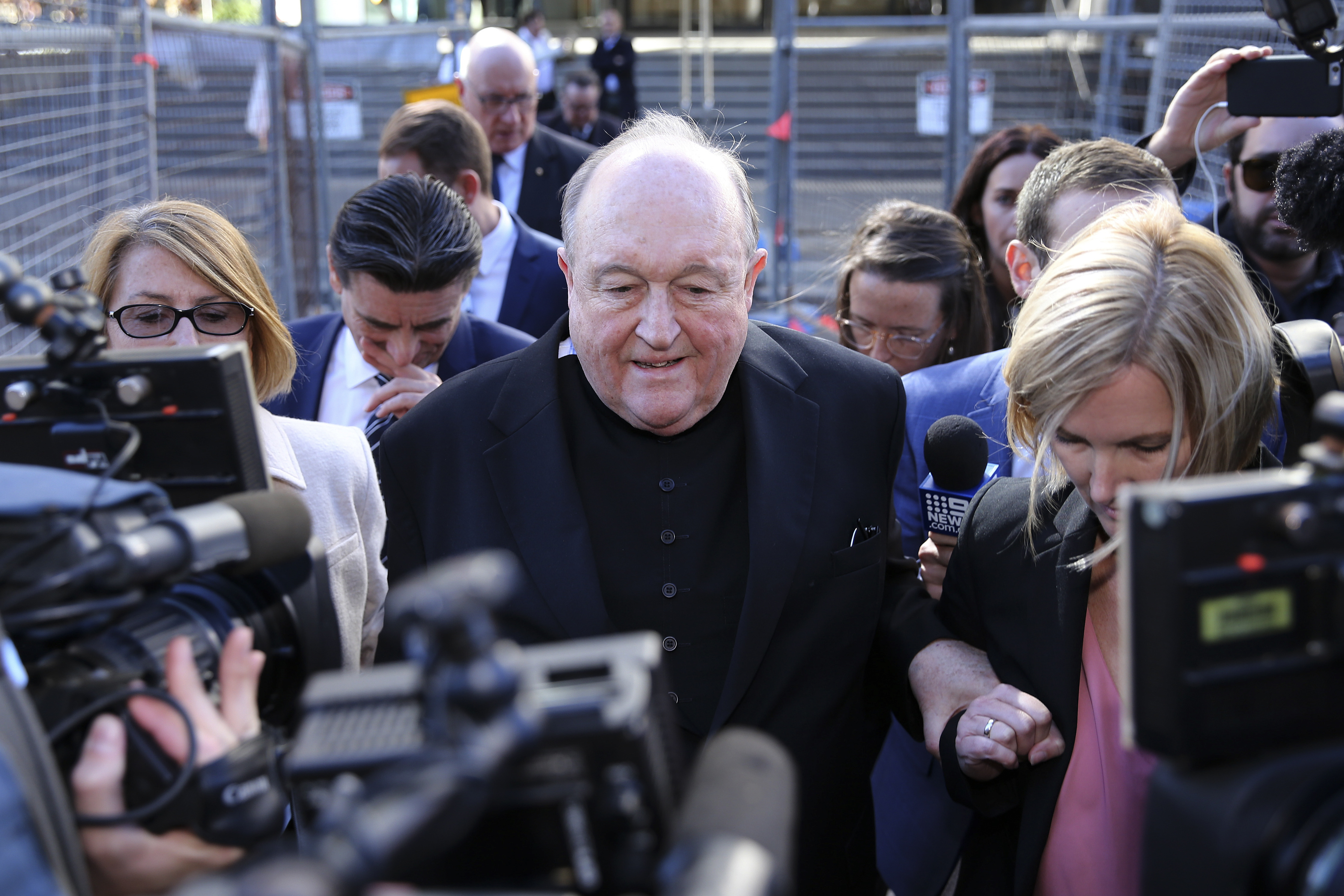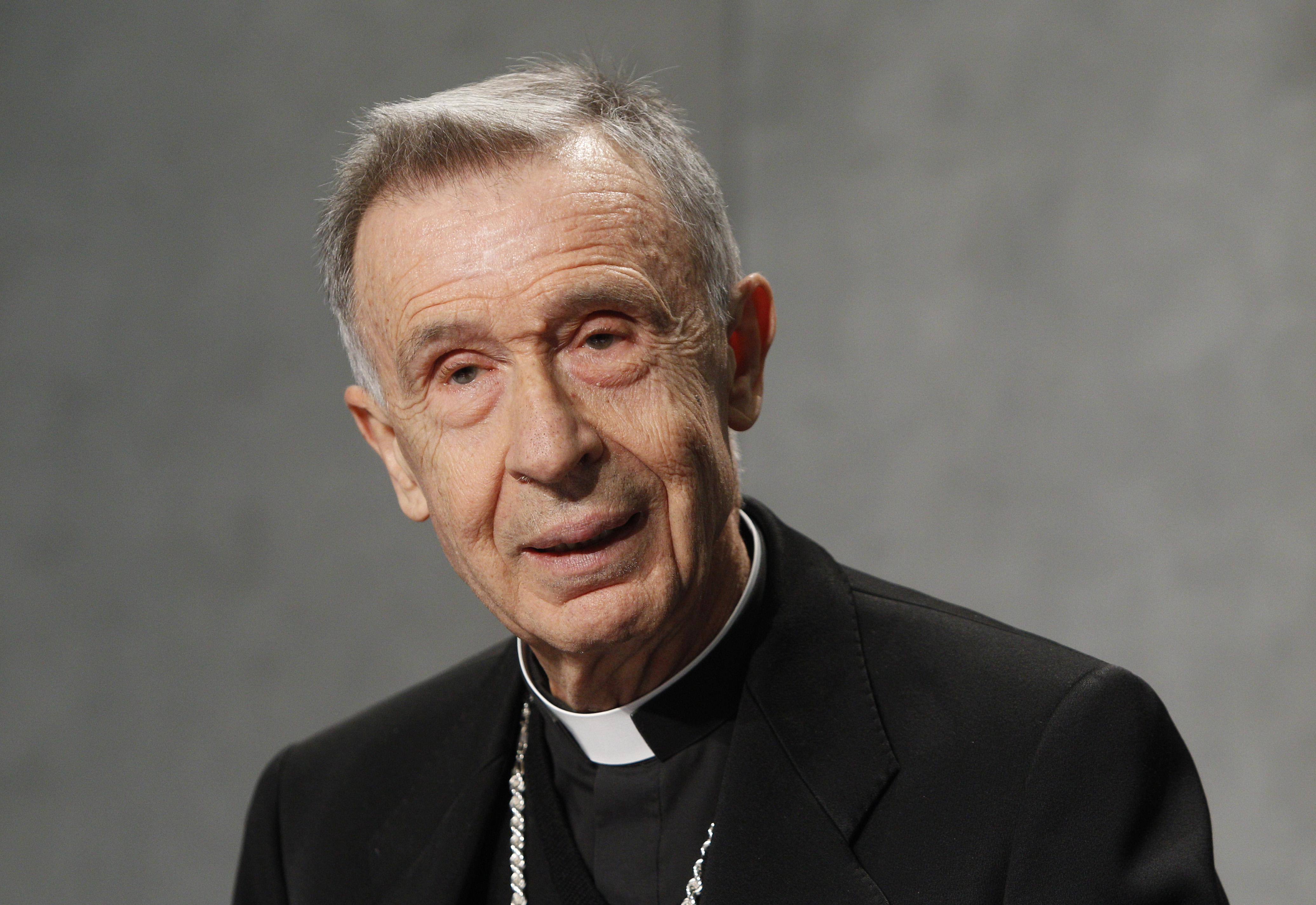Pope Francis has stalled the German bishops’ plan to loosen restrictions on giving communion to Protestants telling them their document on the topic is “not ready” for publication.
A two-thirds majority of the German hierarchy had voted in favour of a “pastoral handout” that would have made it easier for non-Catholic Christians married to Catholics to receive the sacraments. But seven bishops – including a cardinal – protested against the move and appealed to Rome.
In a letter addressed to Cardinal Reinhard Marx, President of the German Episcopal Conference, Archbishop Luis Ladaria, the Prefect of the Congregation for the Doctrine of the Faith, says the Pope has ruled against publishing the document on the grounds of preserving the integrity of Catholic doctrine and Church unity.
"The question of admission to communion for evangelical Christians in inter-confessional marriages is an issue that touches on the faith of the Church and has significance for the universal Church,” Archbishop Ladaria writes in his letter which is also copied to the bishops - including Cardinal Rainer Woelki - who dissented from the German bishops’ plan.
He adds that publication should also be stopped as the matter concerns the law of the Church and ecumenical relations with other Christians.
Archbishop Ladaria emphasises, however, that it is up to a local bishop to decide – according to the current guidelines – when there is a “grave and urgent necessity” to give the sacraments to non-Catholics.
According to canon law, “if the danger of death is present, or if, in the judgement of the diocesan bishop or conference of bishops, some other grave necessity urges it, Catholic ministers administer these same sacraments licitly … to other Christians not having full communion with the Catholic Church, who cannot approach a minister of their own community, and who seek such on their own accord, provided they manifest Catholic faith in respect in respect to these sacraments and are properly disposed."
The German bishops wanted to loosen what are seen by some as very restrictive guidelines in order to respond to the significant number of marriages involving Catholics and Lutherans in their country. The letter from Archbishop Ladaria came on the same day that the Pope warned a group of Lutherans against moving too quickly on the path to achieving Christian unity.
“We must journey and continue: not with the enthusiasm of running ahead to reach coveted goals, but walking patiently together, under the gaze of God,” Francis told a delegation of Lutherans visiting him in the Vatican on Monday. “Some themes – I think of the Church, the Eucharist and the ecclesial ministry – merit precise and well shared reflections.”
He added: “Ecumenism also asks not to be elitist, but to involve as many brothers and sisters as possible in the faith, growing as a community of disciples who pray, love and proclaim.”
The Pope has made some bold steps towards healing the wounds of Christian division during his papacy. He has apologised to evangelicals in Italy for their mistreatment by Catholics, travelled to Sweden to mark the 500th anniversary of the Reformation and later this month is visiting the headquarters of the World Council of Churches in Geneva.
The Pope has also been quizzed on giving communion to Protestants. In 2015 he told a Lutheran married to a Catholic to undertake her own discernment over whether she could receive communion, sparking debate over whether he was advocating a loosening of restrictions on this issue.
But rather than focussing on resolving doctrinal differences, or changing official ecumenical guidelines, Francis prefers an approach where Christians work together if they are already united. He has repeatedly talked about an “ecumenism of blood” that is shared by those killed for their faith regardless of the denomination they belong to, while arguing that theological debate should take second place to trying to put the Gospel into practice.
His decision to stall the German bishops’ plan is also about preserving church unity. Francis has already faced fierce opposition for modest proposals to allow divorced and remarried Catholics to receive communion in some circumstances. The plan on giving communion to Protestants has been vigorously opposed in a number of powerful quarters.
More concerning for the Pope is the possibility of a split within the German church. He urged them to find as “unanimous as possible” an agreement on the matter.
“For the Holy Father it is of great concern that in the German episcopal conference the spirit of episcopal collegiality should remain alive,” Archbishop Ladaria wrote.
While Francis is keen to devolve power to local churches he does not want to this to be at the expense of doctrine and unity.
He made it clear in “Amoris Laetitia”, his family life document, that “not all discussions of doctrinal, moral or pastoral issue” need to be settled by Rome, while in “Evangelii Gaudium”, the manifesto for his papacy, he called for a bishops’ conferences to be given “genuine doctrinal authority”.
But under current rules, set out by John Paul II’s document “Apostolos Suos”, doctrinal declarations by bishops’ conferences need to be approved unanimously in order to have magisterial authority.
The Pope and his council of cardinals, of which Cardinal Marx is a member, have discussed the status of bishops’ conferences including a “re-reading” of “Apostolos Suos” in light of Francis' call for a “healthy decentralisation” in the Church.
While some argue the German bishops' document is a pastoral rather than doctrinal initiative, Francis sees it as the latter.
The restrictions on communion for members of other Christian denominations married to Catholics remain a point of puzzlement and tension, particularly in countries such as Germany and the United Kingdom where Catholics often marry Christians from other denominations.
A famous case was Tony Blair who in 1996 was told by Cardinal Basil Hume, then Archbishop of Westminster, to stop receiving communion when attending Mass with his family.
Only after he left office was Mr Blair was received into the Catholic Church.



 Loading ...
Loading ...